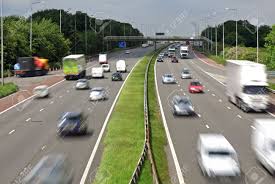What is anticipation? Do you have to learn it? Is it optional?
As you drive your car anywhere, things will be changing all the time. The fact that you are moving along creates a change, as you are forever on a different part of the road. You will rarely be alone on your travels and all of the other road users will be creating changes as well.
With this ever changing scene, planning your actions well ahead and acting promptly to safely deal with the changes becomes crucial.
These actions are your anticipation.
As you gain experience in your driving, anticipation will become an almost automatic reaction which is closely linked to your ability to concentrate.
Anticipation is the mark of a good driver.
Anticipation will give you the time and skills needed to always question the actions of other road users.
With proper anticipation and forward planning, you can:
- Avoid being taken by surprise.
- Prevent some hazards developing.
- Take evasive action early to hazards that do develop.
Patience.
Patience is a quality that is sometimes in short supply from some individuals who use the road.
Remember, most road users do a very decent job of driving, but quite often you will come across members of the minority who think that the rules don't apply to them.
These drivers display aggression, bad manners and incompetence, requiring the rest of us to dig deep into our patience reserves.
Don't allow stupid antics of other drivers lead to conflict. This can lead to an accident. When you have safely dealt with their actions, ignore them and drive on. It's them that looks pathetic.
However, people can make mistakes, so be prepared to make allowances if another driver gets something wrong. Help them out if possible.
Don't
- Retaliate or compete.
- Use aggressive language or gestures.
- Try to teach any other road user a lesson.
- Keep calm, be professional.
- Show restraint. You're better than them.
- Use sound judgement. Set a good example.
The roads are the network that drivers use to go wherever they like, so having a full driving licence and being able to use the complete road system whenever you want is obviously a very desirable state.
Unfortunately, we are not born with the ability to drive, we have to learn all the skills that make a safe driver.
It is this fact that creates learner drivers.........So:
Be patient if you are driving behind a learner.
Don't
- Drive up close behind.
- Rev your engine.
- Become impatient if they are slow to move off.
- Overtake unnecessarily, only to cut in again sharply.
Not every vehicle displaying L plates will have dual controls, and the accompanying driver may not be a professional, so keep your distance!
If you are a learner and you suffer aggressive or stupid behaviour from other drivers, follow the lead of your driving instructor, smile and brush it off. Don't get involved!
If you would like to start learning to drive in Gloucester-
Call Us On 01452614226
Best Regards,
John Lowe.

No comments:
Post a Comment